Ever wonder why your dog gets sick so often?
Having a dog with a sensitive stomach is frustrating. It seems like every time you buy your pup food, they get sick. And vet bills are expensive. Sometimes it feels like giving up on the idea of having a pet altogether is the best option. But there are actually some breeds that are more prone to digestive issues than others. You shouldn’t give up hope just yet!
The answer might be as simple as what they eat, as well as what you feed them. There are certain dog breeds that are prone to sensitive stomachs, and unfortunately, without proper food management, your dog may not be able to digest it.
These breeds may suffer from digestive problems such as diarrhea and vomiting. Some purebreds are more likely to have these problems than others. Labradors and Golden Retrievers can also be prone to digestive issues. This is why it’s important to feed them their specific diet and monitor what they eat.
Dogs with a minor case of intestinal discomfort are commonly referred to as having a “sensitive stomach.” The symptoms include vomiting on rare occasions, stools that are overly loose, and flatulence. Any or all of these problems may be present in your dog, but you should consult your veterinarian immediately if any of them is severe. If your pet vomits or has diarrhea, it could be an indication of an infection that needs to be addressed by your veterinarian.
Dog breeds that may have sensitive stomachs include:

Scottish Terrier – The Scottish terrier is known for having a sensitive and independent personality. He is often called “a big dog in a small body” because of his serious and grumpy attitude. This dog may have the most sensitive stomach of all the dogs. You can blame it on their short digestive tracks, which don’t do well with a lot of foods, like plant and animal proteins, grains, and fiber-rich foods. Most Scottish terriers are prone to food allergies and would scratch, vomit, and lick their paws all the time.
Miniature Schnauzer – The Miniature Schnauzer dog breed is known for being loyal, trainable, and obedient. Most Miniature Schnauzers have trouble digesting food because of a problem with their metabolism that they get from their parents. They may get chronic colitis, which is an inflammatory disease of the bowel, or have a weak biliary system. Hemorrhagic gastroenteritis and pancreatitis are the two main digestive problems that Miniature Schnauzers have.

Yorkie – A Yorkie or Yorkshire Terrier is known for getting pancreatitis. In this case, the dog’s pancreatic enzymes break down the pancreas. The real reason why Yorkies get pancreatitis isn’t known, but it could be because of their genes, medications, diet, toxins, or too much fat in their blood. Yorkshire terriers can also get diarrhea called hemorrhagic gastroenteritis (HGE). This can be very dangerous for such a small breed of dog.
German Shepherd – A German Shepherd is strong, smart, and fearless, but it is also prone to a number of digestive problems. This breed of dog should have a sensitive digestive system that works less well than other breeds. Most of them get stomachaches soon after eating something their gut doesn’t like. German Shepherds can also get bloated because their chests are deep and narrow.
Irish Setter – The Irish Setter is known for being lean, tall, and unable to eat gluten. Most dogs in this breed get enteropathy, a disease of the small intestine, when they eat grains like rice, barley, wheat, oats, and rice. Enteropathy makes it hard to absorb essential nutrients like iron and calcium. Bloat and inflammatory bowel disease are also common in Irish Setters.
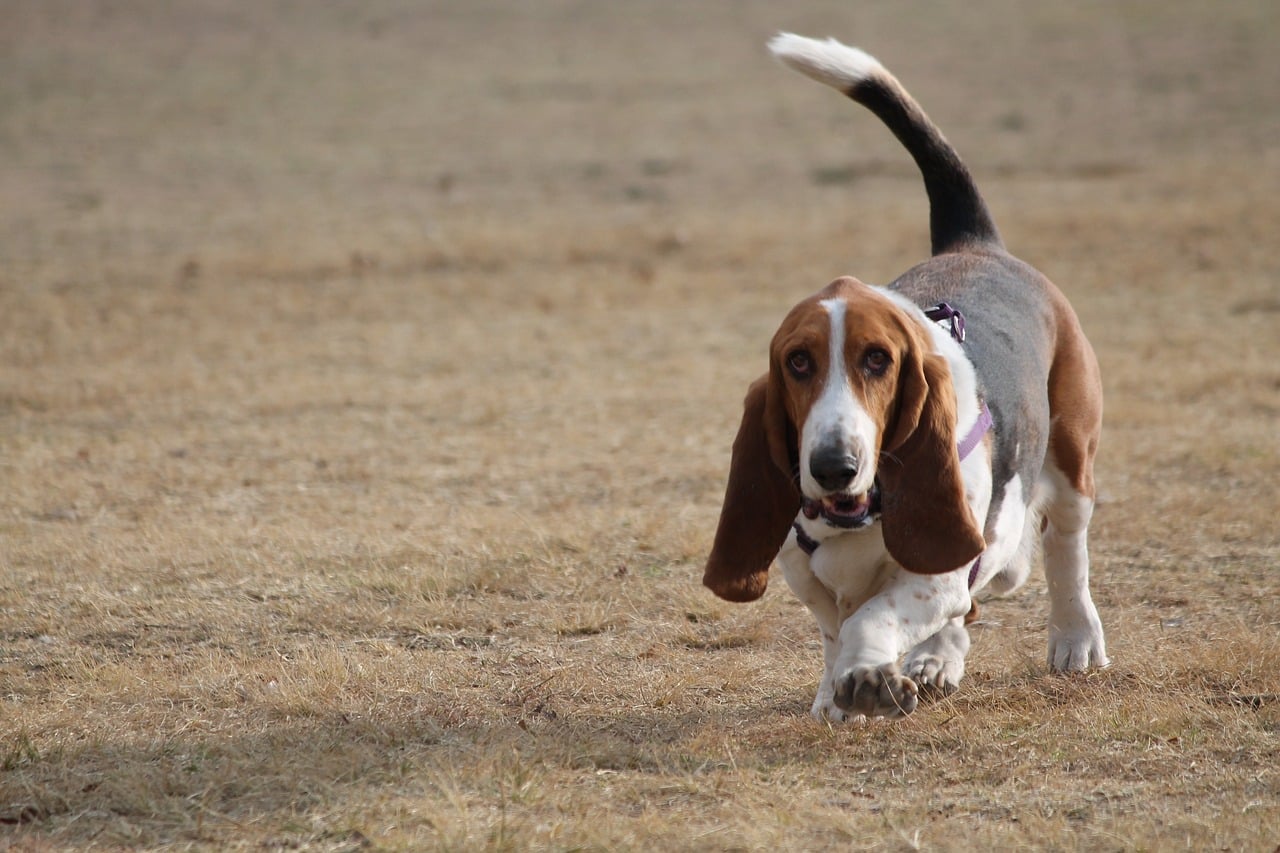
Basset Hounds: A basset hound is short and squat. As a result, one might conclude that he is immune to bloat. The reality is that the structure of this adorable canine breed lends itself perfectly to this catastrophic condition. So, the next time you observe your pet in pain or attempting to vomit after a large meal, you should contact your veterinarian right away.
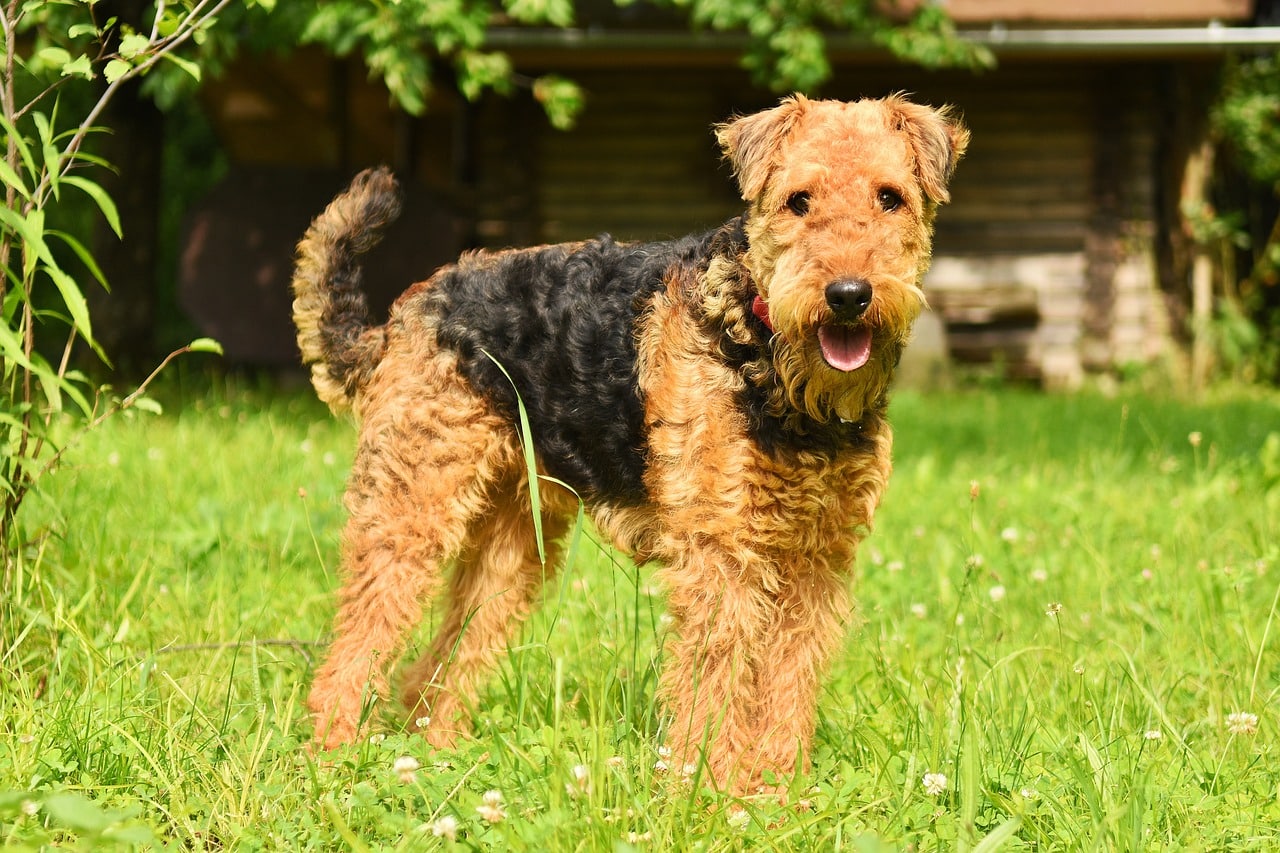
Boxers: Bloating is a prevalent issue in boxers. In mild cases, the condition can cause slight discomfort, similar to the sensation you get when you overeat. In severe situations, the tummy expands and progresses from bloating to gastric torsion. This is the stage at which the belly becomes so large that it twists and cuts off the blood supply.
Labrador Retriever: is vulnerable to gastric dilatation and volvulus due to its deep, narrow chest (also called GDV or bloat). This is the stage at which the gut dilates dramatically, causing extreme pain. Dogs with this condition have a variety of digestive issues, including gas, a futile attempt at throwing up, and diarrhea. If you are expecting to get a Lab soon, make sure to observe his reactions to various foods and make adjustments as needed.:
Great Dane: a massive dog with plenty of affection to give. Unfortunately, he, like the Labrador Retriever, is susceptible to GDV, which is the leading cause of death among Danes. His stomach twists and traps air inside due to his stature and girth. To treat stomach sensitivity in Great Danes, a particular diet free of grains and high in protein meals is required.

Chinese Shar-Pei: known for its wrinkles, is another breed that has a sensitive stomach. As a huge dog, he has a deep, narrow chest, which makes him prone to Bloat. Food allergies and inflammatory bowel illness are very common in the breed. A Shar-Pei with a sensitive stomach will exhibit allergy symptoms such as itching, scratching, and redness.

Shi-Tzu: a Chinese phrase that translates to “lion dog.” These small dogs, without a doubt, have their own personalities. Unfortunately, they are genetically predisposed to a variety of health problems, one being pyloric hypertrophy, a disease that affects the abdominal muscles. This condition reduces outflow and, as a result, creates an ingesta backup in the abdomen. As a result, abdominal pain and vomiting occur.

Lhasa Apso: Pyloric Stenosis is a disorder that affects many Lhasa Apso dog breeds. Technically speaking, the pyloric is the conduit through which partially digested food travels from the stomach to the small intestine and then to the large. There is a condition known as stenosis when food becomes caught in the passageway. Weakness in the stomach and acute vomiting are all signs of this illness. Inflammation of the colon and colitis are also common in Lhasa Apsos.

Poodle: Irritable bowel syndrome is common in Poodles due to their high stomach sensitivity. Constipation, diarrhea, and mucus in the stool are all possible signs and symptoms of this illness. Bloat can be a problem in poodles, but it is far less prevalent. When this happens, surgery is the only way to alleviate the discomfort and restore function to the stomach.

Weimaraner – Like the Collie and the Great Dane, the Weimaraner is a deep-chested dog breed that can sometimes get a twist of the stomach. The gastric torsion blocks the dog’s esophagus and intestines. This puts the dog in a very dangerous situation. Check for the signs of bloating that are listed in this guide, especially after eating a lot.

Akita – The Akita is a huge breed of dog that weighs between 65 and 115 pounds and is known for its loyalty. Akitas are also prone to stomach problems, especially bloat, in addition to having problems with their eyes and their skin.
Frequently Asked Question
Is a wet diet preferable for dogs with delicate stomachs?
Your dog’s wet diet may necessitate the best-canned food for a sensitive stomach. Sensitive stomach dog diets are normally made with a limited number of components in order to eliminate any possible irritants. Allergy-suffering dogs will benefit greatly from eating these formulas as well.


